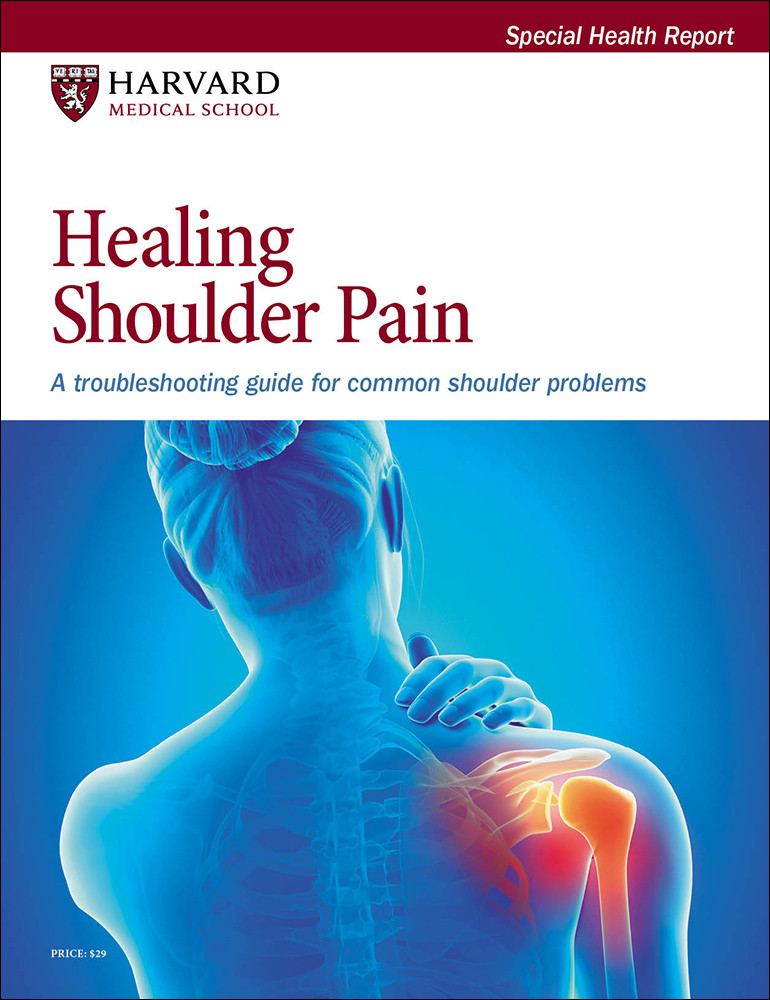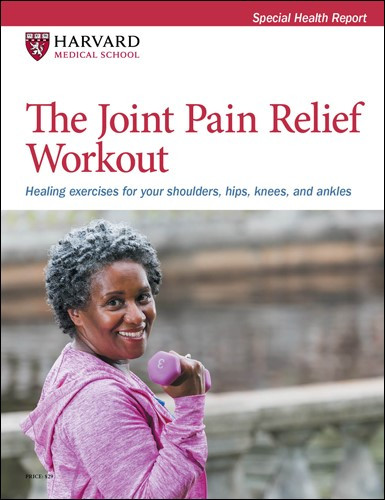Raise your hand if you’ve never had shoulder pain. Indeed, shoulder pain can make even that simple act agonizing. Shoulder problems not only keep you from doing the things you enjoy, but make even routine daily activities daunting and difficult.
You can find freedom and relief from shoulder pain!
The fact is, more than 70% of people will suffer the effects of shoulder pain. You don’t have to be one of them!
In this report you’ll find how you can reduce and relieve shoulder pain… the best techniques to reverse and repair damage… and tips to strengthen and protect your shoulder’s mobility and durability.
You can’t just shrug off shoulder pain.
Shoulder problems rarely go away on their own. Healing Shoulder Pain will show you how to speed their departure with targeted diagnoses and tailored treatments.
You’ll discover how to accurately pinpoint the condition triggering your pain, and how to effectively and safely achieve lasting pain relief and maintain flexibility and renewed range-of-motion.
You don’t have to wince — or wonder.
From the doctors of Harvard Medical School, the Report will take you from symptoms to source to solution. You’ll learn the telltale symptoms that distinguish tendinitis from bursitis… what condition a “Popeye muscle” bulge may signal… and the sometimes unrecognized signs of a rotator cuff tear.
You’ll find the ideal imaging test to diagnose shoulder problems… why you may be increasingly vulnerable to shoulder impingement… and a condition whose symptoms women especially need to watch for.
The bottom line on the best first-line treatments!
Healing Shoulder Pain will show you how to initiate pain relief and improve mobility with the least invasive procedures. You’ll discover a proven approach to end the pain of a separated shoulder… a gentle technique to thaw a frozen shoulder… the most effective OTC medications for shoulder arthritis… a complete shoulder workout to strengthen shoulder muscles…and much more.
You’ll be in the forefront of today’s advances in shoulder surgery.
You’ll learn the important considerations when choosing a surgical procedure… what to expect before, during, and after surgery... and the breakthroughs that are lessening pain and speeding recovery.
You’ll be briefed on an outpatient procedure to relieve chronic arthritis pain… the one gold standard surgery for long-term pain relief… an arthroscopic technique to stabilize a joint after repeated dislocations... and two new technologies that are making shoulder surgery easier and safer than ever.
Wave goodbye to shoulder pain! Don’t wait! Send for your copy of Healing Shoulder Pain today.
Prepared by Harvard Health Publishing in consultation with Evan A. O’Donnell, MD Sports Medicine and Shoulder Orthopaedic Surgeon and Instructor in Orthopaedic Surgery, Harvard Medical School. 49 pages. (2025)













